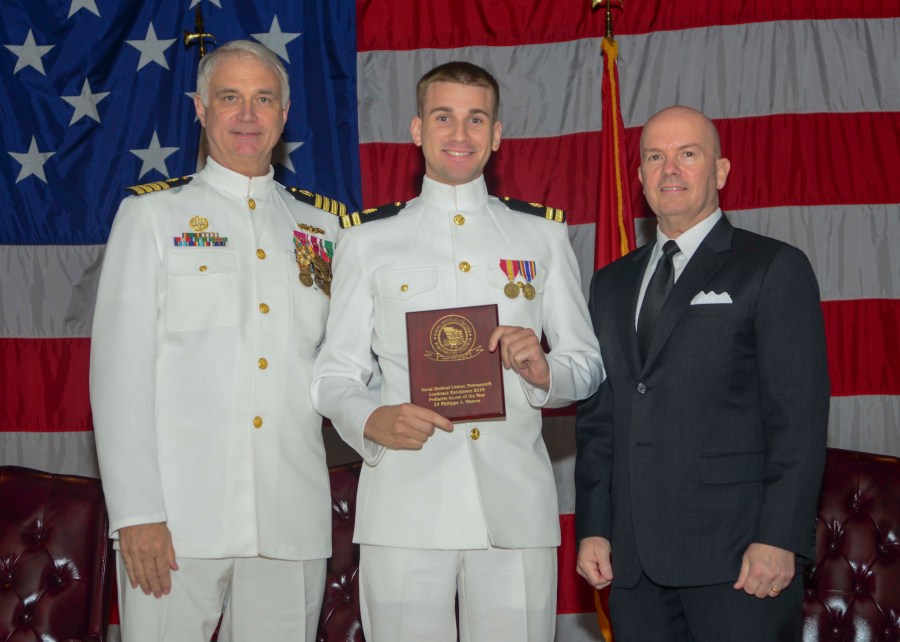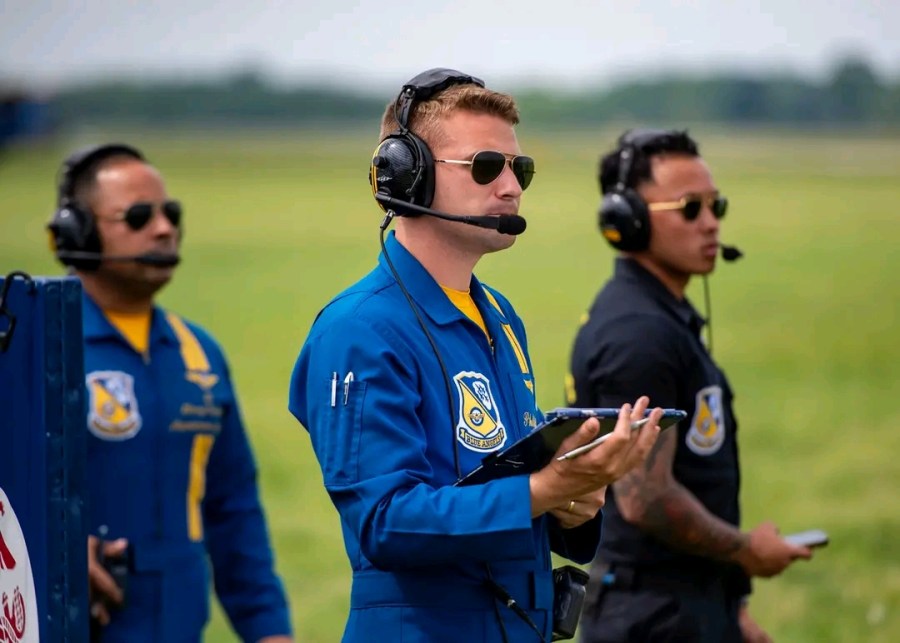VIRGINIA BEACH, Va. (WAVY) — A native of Williamsburg, Lt. Cmdr. Philippe A. Warren is the Blue Angels Flight Surgeon for the 2024 show season. He graduated from Lafayette High school in 2010. Now, he travels with the team, making sure everyone stays safe and healthy.
A graduate of UVA, after graduation, Warren was accepted into Eastern Virginia Medical School. He received orders to Naval Medical Center Portsmouth, where he completed an internship in pediatrics in 2019, and was subsequently selected as the hospital’s Pediatric Intern of the Year.

Today, he makes sure the 17 officers and nearly 100 enlisted personal are healthy and ready to go — and watches the demonstration when the pilots are in the air to make sure maneuvers are being conducted safely.
But before he was a flight surgeon for the Blues — watching them in the air — he was watching WAVY-TV 10 as a young child.
“I remember being a kid, I’d wake up before school and I would watch WAVY-TV 10 and the meteorologists on the air talk about the weather for the day, for the week, and it got me real excited,” he said.

Flying a high performance jet is a strenuous task that puts G forces on the body. Here on earth, sitting still, we experience 1G or 1x the force of gravity. During a demonstration, the pilots will often pull 4-7G’s, causing them to have to work hard to keep their bodies functioning.
“When you start flying and you start doing these tight turns at very high air speeds, you end up feeling increased amount of gravity while you’re doing that,” Warren said. “And the way your body responds to that is your blood ends up pulling into your lower extremities. It can’t get to your brain as easily.”
That loss of blood to your brain can lead to G-LOC, or loss of consciousness, something the pilots are trained to prevent.
“They’re trained to be able to know how to combat that by doing certain muscle movements and breathing techniques,” he said. “That helps make sure that blood will continue to flow to the brain while they’re flying.”
Among his other duties on the team, Warren also often visits hospitals and schools with the team. In 2023, he visited CHKD in Norfolk.













